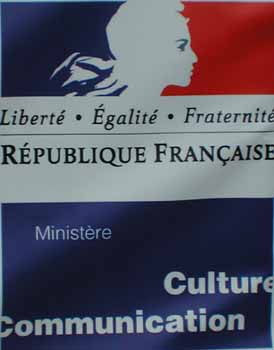|
|
|
When I was small, growing up in a Los Angeles suburb in the 1950s and
1960s, 4th of July was a big deal. We had a parade with marching
bands, flags, old men in uniform, canons, cartwheels, and cotton candy.
We listened to Dodger baseball on the radio. We ate hot dogs,
watermelon, and cherries, and so on, and we could barely wait for it to
be dark enough for fireworks. There were municipal fireworks, but
we had our own, too. Or our neighbors had their own. No
matter, everyone was out in the street, blowing off.
These days it seems ethnic parades in the U.S. have pretty much
supplanted the 4th of July. In California the 5th of May, cinco de
mayo, or "cinco de drinko" as the locals call it, is bigger,
bigger even than cinco de mayo in Mexico. In New York it's St.
Patrick's Day in March, and Puerto Rico day, and so on.
But I'm a sucker for the old 4th of July celebration. So when my
French friend Gilbert invited me to a Bastille Day event in Paris, I
gladly accepted. Bastille Day, July 14th, is Independence Day
here, commemorating the storming of the Bastille in the early days of
the French Revolution some two hundred years ago. Gilbert lives in
Vincennes, pronounced VANN-SENN, a small community on the fringe of
Paris proper. Vincennes feels like Paris, rather than like the suburbs.
The Paris subway goes out there, Paris's huge Bois de Vincennes park is
out there. But technically Vincennes (48,000 inhabitants) is a
separate community.
About fifty people showed up. We started at 10:30 a.m. with a
ceremony at a statue in Vincenne's main square. Then the color
guard lead us in a procession to city hall. The color guard formed
two rows up the city hall steps, and we walked through into city hall
itself. Upstairs in the reception room the mayor read a ten-minute
speech. He talked about liberty, equality, and fraternity.
He talked about the original Bastille Day, and democracy, and the
importance of citizen involvement in the democratic process. The
few children there stood ramrod straight, and adults adopted sincere
looks.
Most were in their 60s and 70s. The ladies had had their hair
done, all colored and coiffed, and wore flower-print dresses. It
was a very hot day, but many men including my friend Gilbert wore suits.
Gilbert's suit was very light, call it a pattern beige, with white shirt
and yellow suspenders. He wore a neon purple tie. He had on
very light shoes, the off-white shoes you'd expect to go with a nearly
white suit and purple neon tie. Some of the other men were just as
dapper.
After the speech there was champagne, cookies and crackers, peanuts,
whiskey, Coca Cola, and those cute colored drinks the French like.
We were very discreet in our drinking, just one or two small glasses
each. This was a ceremony, not a party.
I walked over to three ladies. I said (in French), "Why are
you here?"
They all said the same thing: honor, obligation, ceremony, remembrance,
proud to be French. One of the ladies took me over to meet the
mayor. The mayor was under forty years old, far younger than most
others there, clean cut and earnest.
I said, "You only have old people in Vincennes."
The mayor said, "Only old people come to Bastille Day. To
them it's a big deal. But the average age of Vincennes residents
is actually coming down. That's why we're working to build more
day-care centers." All mayors, all over France, talk
about day-care centers. Apparently day-care centers are one of the
few responsibilities left to local elected officials. Virtually
everything else, all real power, has been centralized in Paris.
The mayor said, "Call me if I can do anything for you."
So I've got that going for me, which is nice, for example if I need a
day-care center in Vincennes.
After all the excitement Gilbert and I went out for coffee.
That night, from our 13th floor Paris apartment, we watched fireworks at
the Eiffel Tower.
Finally, French president Jacques Chirac pardoned thousands of
criminals. This year's list includes Jose Bove, the French
eco-farmer who runs around the world burning down buildings and
destroying crops. Even two hundred years after the revolution the
French still identify with perps, rather than victims, with those who
were in the Bastille rather than with those who put them there. So
on Bastille Day the French president of the day lets the bad guys out of
jail, back on the streets. And everyone rejoices. |
|

|